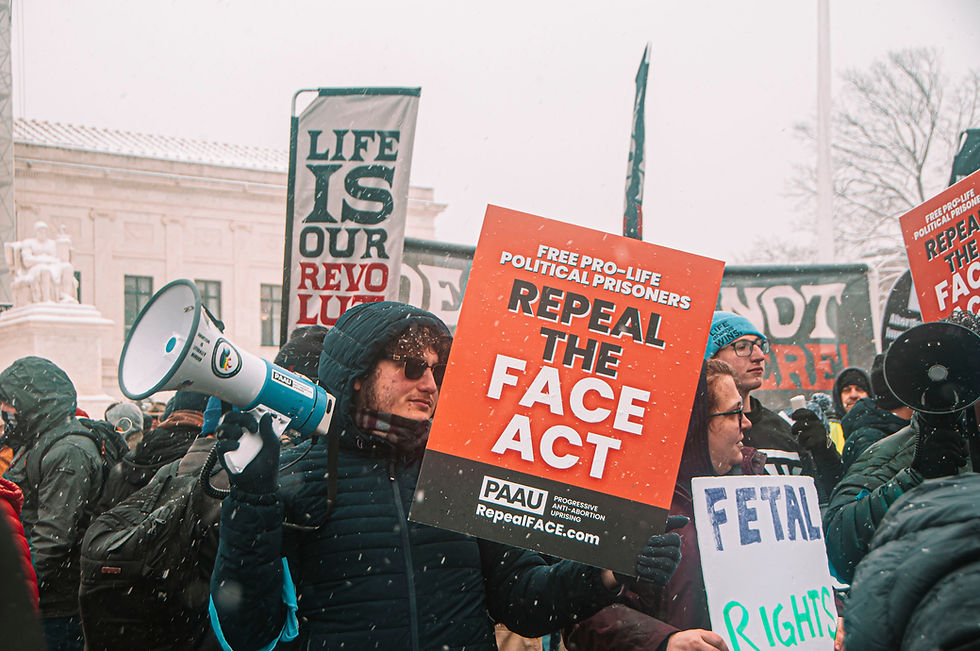2018 Ballot Referenda Recap
- lifemattersjournal

- Nov 29, 2018
- 2 min read
Updated: Feb 12, 2019
by Stephanie Hauer
--
The dust is beginning to settle now that the midterm elections are over. Three different states included referenda on abortion on their ballots this year. What do their results mean for the pro-life movement?
Alabama
The Alabama referendum sought to change state policy to reflect the right to life of a baby in the womb. Those who voted yes on the referendum supported the statement that Alabama should “recognize and support the sanctity of unborn life and the rights of unborn children, including the right to life.” This statement was accompanied by an acknowledgement that nowhere in the state constitution does it say that the right to an abortion or the funding for an abortion is guaranteed, so the state is under no obligation to protect abortions.
Almost 60% of voters in Alabama voted “yes” on the referendum.
This measure puts Alabama in a position to ban abortion when Roe v. Wade is overturned. State representative Matt Fridy sponsored the legislation, and said last year that, “We want to make sure that at a state level, if Roe v. Wade is overturned, that the Alabama Constitution cannot be used as a mechanism by which to claim that there is a right to abortion.”
West Virginia
West Virginia had a very similar referendum to Alabama. The people were asked whether or not to add the following sentence to the state constitution itself: “nothing in this Constitution secures or protects a right to abortion or requires the funding of abortion.” Just like in Alabama, this means that the state would not be obligated to provide funding or access to abortions once Roe v. Wade is overturned.
The referendum just squeaked by, with 51% of the voters supporting it. Since Roe v. Wade is still in place, the federal constitution still requires abortion access. Vote Yes on 1, a group that supported the passing of the amendment, described it as such: “No [current abortion] rights will be taken away, but Amendment 1 will prevent future judges from ‘finding’ in the state constitution either abortion rights or tax funding of abortions.”
Oregon
Oregon’s referendum was about state funding of abortions. The referendum would have prevented state funding from being used to pay for certain abortions, and would have prevented public employees from getting an abortion through their health insurance. However, 63% of Oregon voters said “no” to the referendum. As such, Oregon will remain as one of the seventeen states that permit state funding to be used to pay for elective abortions.
Many people are wondering if Roe v. Wade will be overturned in the near future. As a result, some states are setting up the framework for their response. Alabama and West Virginia have made it clear in their referenda that they are opposed to the state provision of abortions. Only time can tell when exactly Roe v. Wade will indeed be struck down, but until then the pro-life movement will not waver. Through our continued advocacy, we can lend our voices to the voiceless and protect the vulnerable lives around us.



Comments